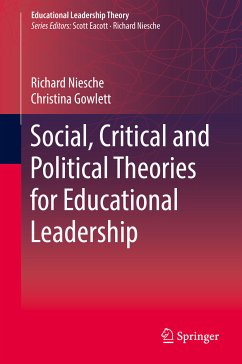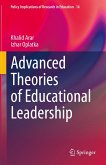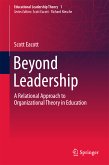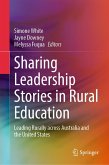¿This book makes the case for the continued and expanded use of social, critical and political theories in the field of educational leadership. It helps readers understand educational leadership by introducing them to a wide variety of theoretical and philosophical approaches and positions. The book incorporates a rich blend of ideas and concepts, and compares and contrasts the approaches discussed.
The content largely focuses on four educational thinkers: Michel Foucault, Judith Butler, Bernard Stiegler and Karen Barad. The chapters do not cover each thinker's oeuvre exhaustively, but instead provide a brief overview of his/her ideas, while also helping readers understand a particular aspect of the educational leadership discourse. Each chapter also provides supplementary reading recommendations for those interested in pursuing these ideas in more depth.
Dieser Download kann aus rechtlichen Gründen nur mit Rechnungsadresse in A, B, BG, CY, CZ, D, DK, EW, E, FIN, F, GR, HR, H, IRL, I, LT, L, LR, M, NL, PL, P, R, S, SLO, SK ausgeliefert werden.









